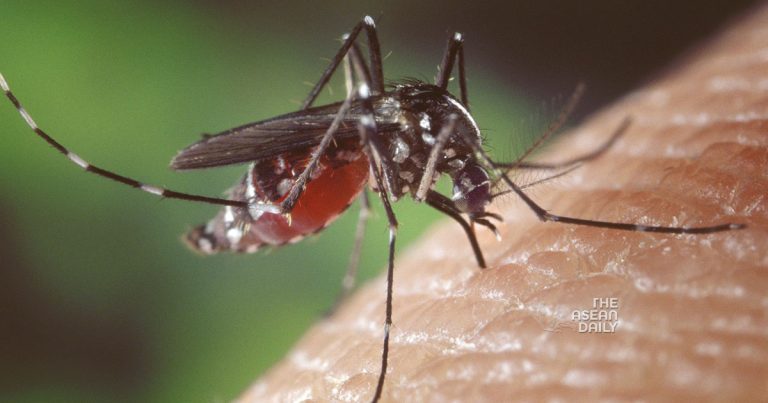21-9-2023 (SINGAPORE) In an unassuming industrial building located in Ang Mo Kio, a unique lab is at the forefront of mosquito control efforts in Singapore. This is the headquarters of Project Wolbachia, a groundbreaking initiative that has bred over 300 million mosquitoes and continues to produce 7 million new ones every week.
Project Wolbachia’s mission is to release non-biting male Aedes aegypti mosquitoes at carefully chosen locations, allowing them to mate with their female counterparts. What sets these male mosquitoes apart is their carrying of the Wolbachia bacteria, which renders the resulting eggs non-viable, thereby helping to control the mosquito population.
Despite these efforts, dengue cases in Singapore have not seen a significant decline since the launch of Project Wolbachia in 2016. In 2022, the country reported 32,173 dengue cases, the second-highest annual count on record, with the highest being 35,266 cases in 2020.
Recently, the National Environment Agency (NEA) issued a warning about the potential for another surge in dengue cases in Singapore. Weekly cases have risen to several hundred, and over 50 active dengue clusters have emerged.
However, Project Wolbachia is not considered a silver bullet for eradicating dengue transmission, as emphasized by Dr. Ng Lee Ching, the group director of NEA’s Environmental Health Institute. She stated that even with Project Wolbachia, there remains a risk of dengue transmission.
In certain Project Wolbachia sites such as Tampines, Yishun, and Choa Chu Kang, the Aedes aegypti mosquito population has decreased by up to 98%, and dengue cases have seen reductions of up to 88%, according to Senior Parliamentary Secretary Baey Yam Ken. However, Dr. Ng stressed that the Wolbachia technology should complement broader dengue control efforts.
Dr. Ng pointed out that if there is a high population of wild mosquitoes, the Wolbachia-infected males released by Project Wolbachia might struggle to compete effectively. Therefore, it is essential to reduce the number of wild-type mosquitoes to enhance the impact of the program.
The recent surge in dengue cases can also be attributed to an increase in dengue virus serotype 1 (DENV-1) cases, which has replaced the previously dominant DENV-3 serotype.
Project Wolbachia now covers approximately 352,000 households, equivalent to around 25% of all households in Singapore. This represents significant growth from the 160,000 households covered in the middle of the previous year. Dr. Ng attributed this expansion to the development of in-house technologies that enable more efficient mosquito production.
Nevertheless, Dr. Ng emphasized that the Wolbachia technology is still evolving and improving. The NEA team is actively learning from the ongoing field trial for Project Wolbachia, exploring the best strategies for mosquito release to maximize effectiveness.
While Project Wolbachia shows promise, it remains in the experimental phase and has not been scaled up to cover the entire country. Experts suggest that there are several challenges in expanding the project nationwide, including high costs, manpower requirements, potential ecological impacts, and public concerns.
To accelerate the process and expand the project’s scope, experts agree that producing more male Wolbachia-Aedes mosquitoes would be necessary. However, the breeding process is subject to a biological clock, and the mosquitoes require time to develop. From the laying of eggs by adult mosquitoes to the production of the next generation of adults, it takes approximately four weeks.
Dr. Ng emphasized that the focus is not just on increasing mosquito numbers but also on ensuring the quality and fitness of the mosquitoes released into the field. The Wolbachia-infected males must be able to compete effectively with wild mosquitoes for the technology to be successful.




